#ai technology in healthcare
Explore tagged Tumblr posts
Text
The Generative AI Revolution: Transforming Industries with Brillio
The realm of artificial intelligence is experiencing a paradigm shift with the emergence of generative AI. Unlike traditional AI models focused on analyzing existing data, generative AI takes a leap forward by creating entirely new content. The generative ai technology unlocks a future brimming with possibilities across diverse industries. Let's read about the transformative power of generative AI in various sectors:
1. Healthcare Industry:
AI for Network Optimization: Generative AI can optimize healthcare networks by predicting patient flow, resource allocation, etc. This translates to streamlined operations, improved efficiency, and potentially reduced wait times.
Generative AI for Life Sciences & Pharma: Imagine accelerating drug discovery by generating new molecule structures with desired properties. Generative AI can analyze vast datasets to identify potential drug candidates, saving valuable time and resources in the pharmaceutical research and development process.
Patient Experience Redefined: Generative AI can personalize patient communication and education. Imagine chatbots that provide tailored guidance based on a patient's medical history or generate realistic simulations for medical training.
Future of AI in Healthcare: Generative AI has the potential to revolutionize disease diagnosis and treatment plans by creating synthetic patient data for anonymized medical research and personalized drug development based on individual genetic profiles.
2. Retail Industry:
Advanced Analytics with Generative AI: Retailers can leverage generative AI to analyze customer behavior and predict future trends. This allows for targeted marketing campaigns, optimized product placement based on customer preferences, and even the generation of personalized product recommendations.
AI Retail Merchandising: Imagine creating a virtual storefront that dynamically adjusts based on customer demographics and real-time buying patterns. Generative AI can optimize product assortments, recommend complementary items, and predict optimal pricing strategies.
Demystifying Customer Experience: Generative AI can analyze customer feedback and social media data to identify emerging trends and potential areas of improvement in the customer journey. This empowers retailers to take proactive steps to enhance customer satisfaction and loyalty.
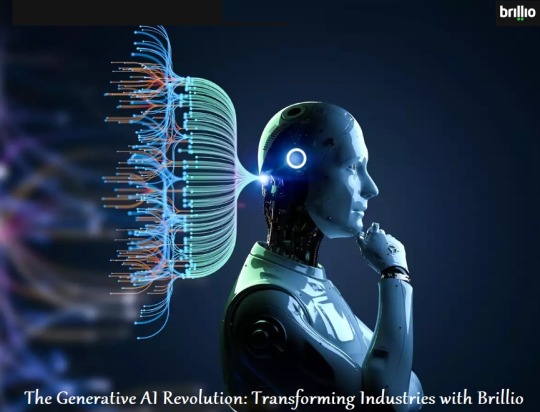
3. Finance Industry:
Generative AI in Banking: Generative AI can streamline loan application processes by automatically generating personalized loan offers and risk assessments. This reduces processing time and improves customer service efficiency.
4. Technology Industry:
Generative AI for Software Testing: Imagine automating the creation of large-scale test datasets for various software functionalities. Generative AI can expedite the testing process, identify potential vulnerabilities more effectively, and contribute to faster software releases.
Generative AI for Hi-Tech: This technology can accelerate innovation in various high-tech fields by creating novel designs for microchips, materials, or even generating code snippets to enhance existing software functionalities.
Generative AI for Telecom: Generative AI can optimize network performance by predicting potential obstruction and generating data patterns to simulate network traffic scenarios. This allows telecom companies to proactively maintain and improve network efficiency.
5. Generative AI Beyond Industries:
GenAI Powered Search Engine: Imagine a search engine that understands context and intent, generating relevant and personalized results tailored to your specific needs. This eliminates the need to sift through mountains of irrelevant information, enhancing the overall search experience.
Product Engineering with Generative AI: Design teams can leverage generative AI to create new product prototypes, explore innovative design possibilities, and accelerate the product development cycle.
Machine Learning with Generative AI: Generative AI can be used to create synthetic training data for machine learning models, leading to improved accuracy and enhanced efficiency.
Global Data Studio with Generative AI: Imagine generating realistic and anonymized datasets for data analysis purposes. This empowers researchers, businesses, and organizations to unlock insights from data while preserving privacy.
6. Learning & Development with Generative AI:
L&D Shares with Generative AI: This technology can create realistic simulations and personalized training modules tailored to individual learning styles and skill gaps. Generative AI can personalize the learning experience, fostering deeper engagement and knowledge retention.
HFS Generative AI: Generative AI can be used to personalize learning experiences for employees in the human resources and financial services sector. This technology can create tailored training programs for onboarding, compliance training, and skill development.
7. Generative AI for AIOps:
AIOps (Artificial Intelligence for IT Operations) utilizes AI to automate and optimize IT infrastructure management. Generative AI can further enhance this process by predicting potential IT issues before they occur, generating synthetic data for simulating scenarios, and optimizing remediation strategies.
Conclusion:
The potential of generative AI is vast, with its applications continuously expanding across industries. As research and development progress, we can expect even more groundbreaking advancements that will reshape the way we live, work, and interact with technology.
Reference- https://articlescad.com/the-generative-ai-revolution-transforming-industries-with-brillio-231268.html
#google generative ai services#ai for network optimization#generative ai for life sciences#generative ai in pharma#generative ai in banking#generative ai in software testing#ai technology in healthcare#future of ai in healthcare#advanced analytics in retail#ai retail merchandising#generative ai for telecom#generative ai for hi-tech#generative ai for retail#learn demystifying customer experience#generative ai for healthcare#product engineering services with Genai#accelerate application modernization#patient experience with generative ai#genai powered search engine#machine learning solution with ai#global data studio with gen ai#l&d shares with gen ai technology#hfs generative ai#generative ai for aiops
0 notes
Text
"Retired Canadian neurologist excited to employ ChatGPT to replace healthcare workers" was not the opinion piece that makes me confident about the future
#the reckless optimism of boomers with no concern for their technological follies they plan to leave behind is pretty damn worrisome my dudes#Canadian politics#this is their brilliant suggestion for solving our current healthcare crisis is to outsource it to AI btw 🙃
34 notes
·
View notes
Text

Neturbiz Enterprises - AI Innov7ions
Our mission is to provide details about AI-powered platforms across different technologies, each of which offer unique set of features. The AI industry encompasses a broad range of technologies designed to simulate human intelligence. These include machine learning, natural language processing, robotics, computer vision, and more. Companies and research institutions are continuously advancing AI capabilities, from creating sophisticated algorithms to developing powerful hardware. The AI industry, characterized by the development and deployment of artificial intelligence technologies, has a profound impact on our daily lives, reshaping various aspects of how we live, work, and interact.
#ai technology#Technology Revolution#Machine Learning#Content Generation#Complex Algorithms#Neural Networks#Human Creativity#Original Content#Healthcare#Finance#Entertainment#Medical Image Analysis#Drug Discovery#Ethical Concerns#Data Privacy#Artificial Intelligence#GANs#AudioGeneration#Creativity#Problem Solving#ai#autonomous#deepbrain#fliki#krater#podcast#stealthgpt#riverside#restream#murf
16 notes
·
View notes
Text
Also preserved in our archive (Daily updates!)
Researchers say new AI tool sharpens diagnostic process, may help identify more people needing care While earlier diagnostic studies have suggested that 7 percent of the population suffers from long COVID, a new AI tool developed by Mass General Brigham revealed a much higher 22.8 percent, according to the study.
The AI-based tool can sift through electronic health records to help clinicians identify cases of long COVID. The often-mysterious condition can encompass a litany of enduring symptoms, including fatigue, chronic cough, and brain fog after infection from SARS-CoV-2.
The algorithm used was developed by drawing de-identified patient data from the clinical records of nearly 300,000 patients across 14 hospitals and 20 community health centers in the Mass General Brigham system. The results, published in the journal Med, could identify more people who should be receiving care for this potentially debilitating condition.
“Our AI tool could turn a foggy diagnostic process into something sharp and focused, giving clinicians the power to make sense of a challenging condition,” said senior author Hossein Estiri, head of AI Research at the Center for AI and Biomedical Informatics of the Learning Healthcare System (CAIBILS) at MGB and an associate professor of medicine at Harvard Medical School. “With this work, we may finally be able to see long COVID for what it truly is — and more importantly, how to treat it.”
For the purposes of their study, Estiri and colleagues defined long COVID as a diagnosis of exclusion that is also infection-associated. That means the diagnosis could not be explained in the patient’s unique medical record but was associated with a COVID infection. In addition, the diagnosis needed to have persisted for two months or longer in a 12-month follow up window.
The novel method developed by Estiri and colleagues, called “precision phenotyping,” sifts through individual records to identify symptoms and conditions linked to COVID-19 to track symptoms over time in order to differentiate them from other illnesses. For example, the algorithm can detect if shortness of breath results from pre-existing conditions like heart failure or asthma rather than long COVID. Only when every other possibility was exhausted would the tool flag the patient as having long COVID.
“Physicians are often faced with having to wade through a tangled web of symptoms and medical histories, unsure of which threads to pull, while balancing busy caseloads. Having a tool powered by AI that can methodically do it for them could be a game-changer,” said Alaleh Azhir, co-lead author and an internal medicine resident at Brigham and Women’s Hospital, a founding member of the Mass General Brigham healthcare system.
The new tool’s patient-centered diagnoses may also help alleviate biases built into current diagnostics for long COVID, said researchers, who noted diagnoses with the official ICD-10 diagnostic code for long COVID trend toward those with easier access to healthcare.
The researchers said their tool is about 3 percent more accurate than the data ICD-10 codes capture, while being less biased. Specifically, their study demonstrated that the individuals they identified as having long COVID mirror the broader demographic makeup of Massachusetts, unlike long COVID algorithms that rely on a single diagnostic code or individual clinical encounters, skewing results toward certain populations such as those with more access to care.
“This broader scope ensures that marginalized communities, often sidelined in clinical studies, are no longer invisible,” said Estiri.
Limitations of the study and AI tool include that health record data the algorithm uses to account for long COVID symptoms may be less complete than the data physicians capture in post-visit clinical notes. Another limitation was the algorithm did not capture possible worsening of a prior condition that may have been a long COVID symptom. For example, if a patient had COPD that worsened before they developed COVID-19, the algorithm might have removed the episodes even if they were long COVID indicators. Declines in COVID-19 testing in recent years also makes it difficult to identify when a patient may have first gotten COVID-19.
The study was limited to patients in Massachusetts.
Future studies may explore the algorithm in cohorts of patients with specific conditions, like COPD or diabetes. The researchers also plan to release this algorithm publicly on open access so physicians and healthcare systems globally can use it in their patient populations.
In addition to opening the door to better clinical care, this work may lay the foundation for future research into the genetic and biochemical factors behind long COVID’s various subtypes. “Questions about the true burden of long COVID — questions that have thus far remained elusive — now seem more within reach,” said Estiri.
Link to preprint: www.medrxiv.org/content/10.1101/2024.04.13.24305771v2
#AI#long covid#covid is airborne#public health#wear a mask#covid 19#wear a respirator#still coviding#coronavirus#sars cov 2#technology#healthcare
12 notes
·
View notes
Text
"In the oldest and most prestigious young adult science competition in the nation, 17-year-old Ellen Xu used a kind of AI to design the first diagnosis test for a rare disease that struck her sister years ago.
With a personal story driving her on, she managed an 85% rate of positive diagnoses with only a smartphone image, winning her $150,000 grand for a third-place finish.
Kawasaki disease has no existing test method, and relies on a physician’s years of training, ability to do research, and a bit of luck.
Symptoms tend to be fever-like and therefore generalized across many different conditions. Eventually if undiagnosed, children can develop long-term heart complications, such as the kind that Ellen’s sister was thankfully spared from due to quick diagnosis.
Xu decided to see if there were a way to design a diagnostic test using deep learning for her Regeneron Science Talent Search medicine and health project. Organized since 1942, every year 1,900 kids contribute adventures.
She designed what is known as a convolutional neural network, which is a form of deep-learning algorithm that mimics how our eyes work, and programmed it to analyze smartphone images for potential Kawasaki disease.
However, like our own eyes, a convolutional neural network needs a massive amount of data to be able to effectively and quickly process images against references.
For this reason, Xu turned to crowdsourcing images of Kawasaki’s disease and its lookalike conditions from medical databases around the world, hoping to gather enough to give the neural network a high success rate.
Xu has demonstrated an 85% specificity in identifying between Kawasaki and non-Kawasaki symptoms in children with just a smartphone image, a demonstration that saw her test method take third place and a $150,000 reward at the Science Talent Search."
-Good News Network, 3/24/23
#heart disease#pediatrics#healthcare#kawasaki#neural network#ai#science and technology#rare disease#medical tests#medical science#good news#hope
75 notes
·
View notes
Text
Improv for Medical Professionals: Healing with Humor
The world of medicine can often be a high-stress environment. Long hours, demanding patients, and life-or-death decisions can take their toll. But what if there was a way to inject a little levity into the daily grind, while also improving patient care and teamwork? Enter improv comedy. At the New York Improv Theater, we’ve witnessed firsthand the transformative power of improv for medical…
#Ai#Artificial intelligence#broadway#club#comedy#Doctor#health#Health services#healthcare#Hospital#interactive#Medical#medicine#new york#Nurse#nyc#office#psychology#Social worker#technology#teens#times square
3 notes
·
View notes
Text
Top Futuristic AI Based Applications by 2024
2024 with Artificial Intelligence (AI) is the backdrop of what seems to be another revolutionary iteration across industries. AI has matured over the past year to provide novel use cases and innovative solutions in several industries. This article explores most exciting AI applications that are driving the future.
1. Customized Chatbots
The next year, 2024 is seeing the upward trajectory of bespoke chatbots. Google, and OpenAI are creating accessible user-friendly platforms that enable people to build their own small-scale chatbots for particular use cases. These are the most advanced Chatbots available in the market — Capable of not just processing text but also Images and Videos, giving a plethora of interactive applications. For example, estate agents can now automatically create property descriptions by adding the text and images of listings thatsurgent.
2. AI in Healthcare
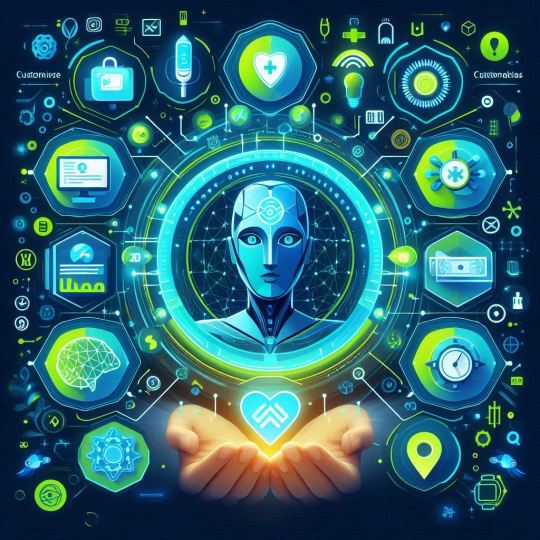
AI has found numerous applications in the healthcare industry, from diagnostics to personalized treatment plans. After all, AI-driven devices can analyze medical imaging material more accurately than humans and thus among other things help to detect diseases such as cancer at an early stage. They will also describe how AI algorithms are used to create tailored treatment strategies personalized for each patient's genetics and clinical past, which helps enable more precise treatments.
3. Edge AI
A major trend in 2024 is Edge AI It enables computer processing to be done at the edge of a network, rather than in large data centers. Because of its reduced latency and added data privacy, Edge AI can be used in applications like autonomous vehicles transportations, smart cities as well as industrial automation. Example, edge AI in autonomous vehicles is able to get and process real-time data, increasing security by allowing faster decision-making.
4. AI in Finance
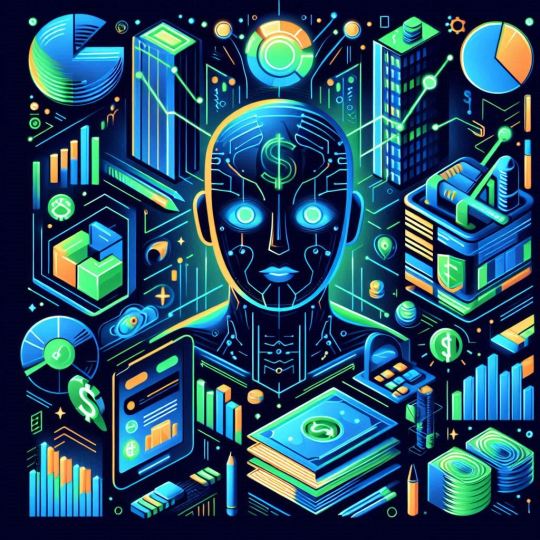
Today, the financial sector is using AI to make better decisions and provide an even stronger customer experience. Fraud detection, risk assessment and customised financial advice have introduced insurance into the AI algorithm. AI-powered chatbots and virtual assistants are now common enough to be in use by 2024, greatly assisting customers stay on top of their financial well-being. Those tools will review your spending behavior, write feedback to you and even help with some investment advices.
5. AI in Education
AI is revolutionizing education with individualized learning. These AI-powered adaptive learning platforms use data analytics to understand how students fare and produces a customised educational content (Hoos, 2017). This way, students get a tailored experience and realize better outcomes. Not only that, AI enabled tools are also in use for automating administrative tasks which shortens the time required by educators on teaching.
6. AI in Job Hunting
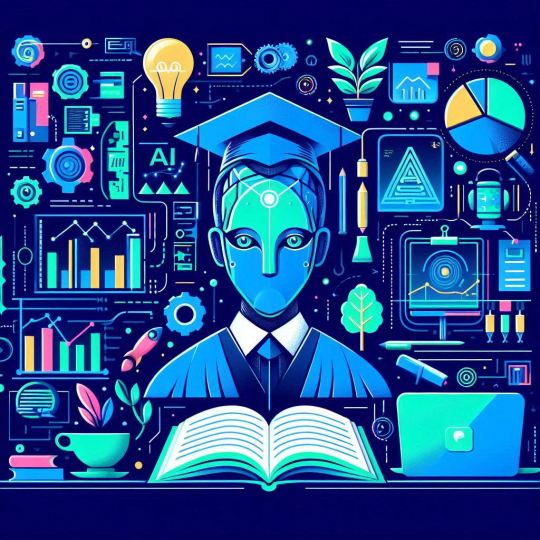
This is also reverberating in the job sector, where AI technology has been trending. With tools like Canyon AI Resume Builder, you can spin the best resumé that might catch something eye catchy recruiter among a dozen others applications he receives in-between his zoom meeting. Using AI based tools to analyze Job Descriptions and match it with the required skills, experience in different job roles help accelerating the chances of a right fit JOB.
7. Artificial Intelligence in Memory & Storage Solutions
Leading AI solutions provider Innodisk presents its own line of memory and storage with added in-house designed AI at the recent Future of Memory & Storage (FMS) 2024 event. Very typically these are solutions to make AI applications easier, faster and better by improving performance scalability as well on the quality. This has huge implications on sectors with substantial data processing and storage demands (healthcare, finance, self-driving cars).
Conclusion
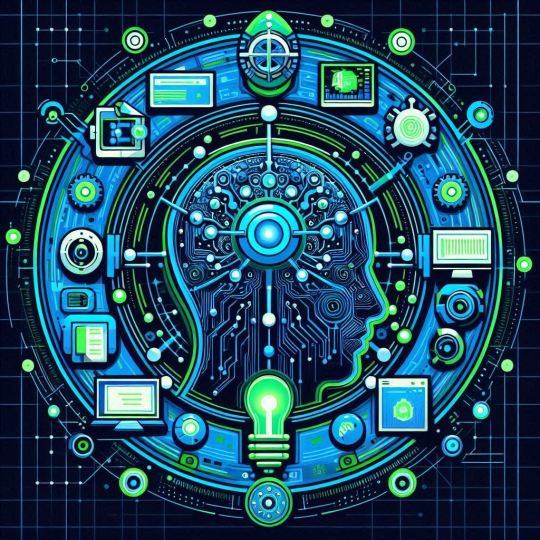
2024 — Even at the edge of possible, AI is revolutionizing across many industries. AI is changing our lives from tailored chatbots and edge AI to healthcare, finance solutions or education and job search. This will not only improve your business profile as a freelancer who create SEO optimized content and write copies but also give your clients in the writing for business niche some very useful tips.
#ai#ai in healthcare#ai in finance#ai in wealth management#ai in business#AI trends#artificial intelligence#advanced technologies#innovation#technological advancements
3 notes
·
View notes
Text
youtube
#Aperture#video essay#algorithm#algorithms#Eric Loomis#COMPAS#thought piece#computer#computer program#data#data brokers#targeted ads#data breach#terminal#the silver machine#AI#machine learning#healthcare#tech#technology#profit#Youtube
2 notes
·
View notes
Text
ANNOUNCEMENT!
We have a website where we will be posting our new posts soon. Please start visiting this website for new updates and posts.
This is our new website: https://csmedworldinsights.wordpress.com
Please share this, reblog and comment!
#medical field#research#tech#health infomatics#software engineering#educational#college#high school#medicine#education#wordpress#blog#extracurricularactivities#important#writing#website#developer#website developers#stemblr#world#international#informative#technology#biomedical#biomedical engineering#healthcare#school#ai#coding#engineering
3 notes
·
View notes
Text
Applications of GenAI in Healthcare
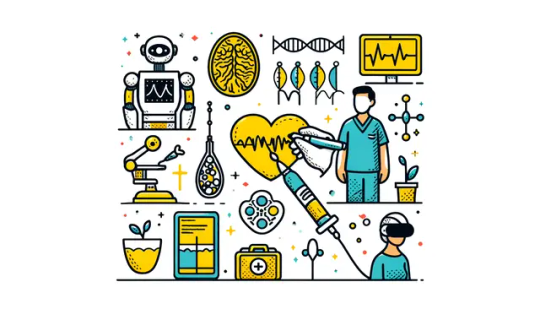
Generative AI in Medical Imaging revolutionizes healthcare practices by streamlining various processes. In diagnostics, Generative AI enhances the accuracy of disease identification through detailed image analysis, leading to quicker treatment decisions and improved patient outcomes.
Moreover, this technology facilitates personalized treatment plans tailored to individual patients based on comprehensive imaging data. Beyond diagnostics, Generative AI assists in drug discovery by simulating molecular structures, accelerating research efforts to develop new treatments. Its applications extend to improving operational efficiency in healthcare settings, optimizing resource allocation, and workflow management.
By integrating Generative AI into healthcare systems, providers can enhance patient care, drive innovation, and pave the way for transformative advancements in medical practices.
For more in-depth insights on the transformative applications of Generative AI in healthcare, explore:
#generative ai#healthcare#generative ai in healthcare#medical imaging#medical technology#future of healthcare#technology#technologies#healthcare technology
4 notes
·
View notes
Text
Inteligência Artificial - Cooperação entre NVIDIA e Microsoft

A Microsoft e a NVIDIA anunciaram integrações importantes no campo da Inteligência Artificial generativa para empresas em todo o mundo. Saiba mais em: https://news.microsoft.com/2024/03/18/microsoft-and-nvidia-announce-major-integrations-to-accelerate-generative-ai-for-enterprises-everywhere/
______ Direitos de imagem: © Microsoft (via https://news.microsoft.com/)
#MSFT#Microsoft#NVDA#NVIDIA#IA#AI#MicrosoftAzure#Azure#Chip#SuperChip#GraceBlackwell#Omniverse#Copilot#AzureAI#Empresas#Business#enterprise#developer#healthcare#digitalization#europe#world#technology#future#futurenow
2 notes
·
View notes
Text
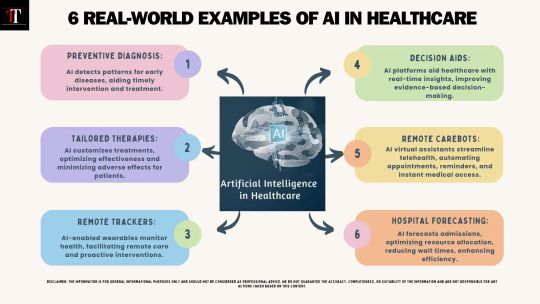
Experience a paradigm shift in diabetes care with Artificial Intelligence and Machine Learning. Our cutting-edge technology harnesses the power of data, enabling personalized and proactive management. Discover how Artificial Intelligence and Machine Learning in Diabetes Care redefine treatment, offering precision and efficiency. Stay ahead of health challenges with the transformative capabilities of Artificial Intelligence And Machine Learning in Diabetes Care. Embrace innovation for a healthier, more informed lifestyle.
2 notes
·
View notes
Text
Unleashing Gen AI: A Revolution in the Audio-Visual Landscape
Artificial Intelligence (AI) has consistently pushed the boundaries of what is possible in various industries, but now, we stand at the brink of a transformative leap: Generative AI, or Gen AI. Gen AI promises to reshape the audio-visual space in profound ways, and its impact extends to a plethora of industries. In this blog, we will delve into the essence of Gen AI and explore how it can bring about a sea change in numerous sectors.
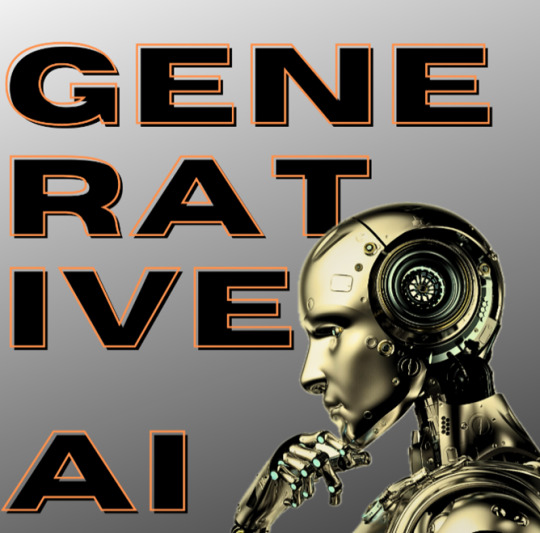
Decoding Generative AI (Gen AI)
Generative AI is the frontier of AI where machines are capable of creating content that is remarkably human-like. Harnessing neural networks, particularly Recurrent Neural Networks (RNNs) and Generative Adversarial Networks (GANs), Gen AI can generate content that is not just contextually accurate but also creatively ingenious.
The Mechanics of Gen AI
Gen AI operates by dissecting and imitating patterns, styles, and structures from colossal datasets. These learned insights then fuel the creation of content, whether it be music, videos, images, or even deepfake simulations. The realm of audio-visual content is undergoing a monumental transformation courtesy of Gen AI.
Revolutionizing the Audio-Visual Realm
The influence of Generative AI in the audio-visual sphere is profound, impacting several dimensions of content creation and consumption:
1. Musical Masterpieces:
Gen AI algorithms have unlocked the potential to compose music that rivals the creations of human composers. They can effortlessly dabble in diverse musical genres, offering a treasure trove of opportunities for musicians, film score composers, and the gaming industry. Automated music composition opens the doors to boundless creative possibilities.
2. Cinematic Magic:
In the world of film production, Gen AI can conjure up realistic animations, special effects, and entirely synthetic characters. It simplifies video editing, making it more efficient and cost-effective. Content creators, filmmakers, and advertisers are poised to benefit significantly from these capabilities.
3. Artistic Expression:
Gen AI is the artist's secret tool, generating lifelike images and artworks. It can transform rudimentary sketches into professional-grade illustrations and graphics. Industries like fashion, advertising, and graphic design are harnessing this power to streamline their creative processes.
4. Immersive Reality:
Gen AI plays a pivotal role in crafting immersive experiences in virtual and augmented reality. It crafts realistic 3D models, environments, and textures, elevating the quality of VR and AR applications. This technological marvel has applications in gaming, architecture, education, and beyond.
Industries Set to Reap the Rewards
The versatile applications of Generative AI are a boon to numerous sectors:
1. Entertainment Industry:
Entertainment stands as a vanguard in adopting Gen AI. Film production, music composition, video game development, and theme park attractions are embracing Gen AI to elevate their offerings.
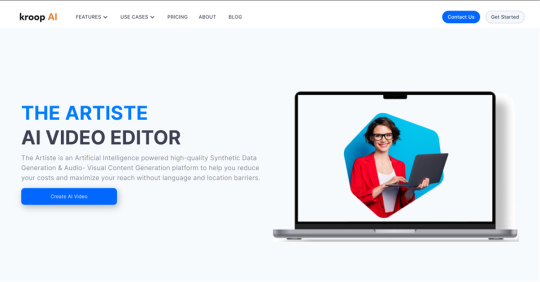
2. Marketing and Advertising:
Gen AI streamlines content creation for marketing campaigns. It generates ad copies, designs visual materials, and crafts personalized content, thereby saving time and delivering more engaging and relevant messages.
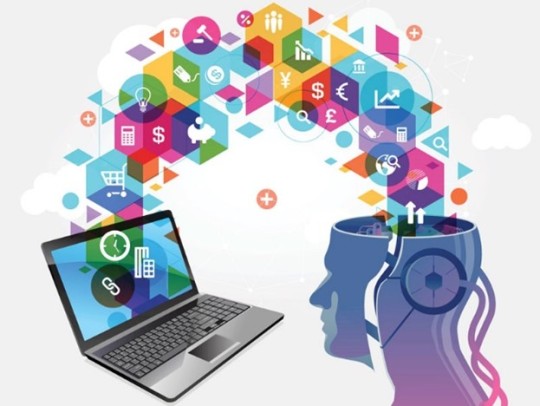
3. Healthcare and Medical Imaging:
In the realm of healthcare, Gen AI enhances medical imaging, aids in early disease detection, and generates 3D models for surgical planning and training.
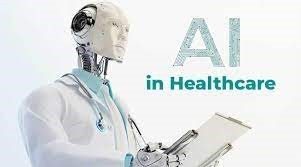
4. Education:
Gen AI facilitates the creation of interactive learning materials, custom tutoring content, and immersive language learning experiences with its natural-sounding speech synthesis.

5. Design and Architecture:
Architects and designers benefit from Gen AI by generating detailed blueprints, 3D models, and interior design concepts based on precise user specifications.

The Future of Gen AI
The journey of Generative AI is far from over, and the future holds promise for even more groundbreaking innovations. However, it is imperative to navigate the ethical and societal implications thoughtfully. Concerns related to misuse, privacy, and authenticity should be addressed, and the responsible development and application of Gen AI must be prioritized.
In conclusion, Generative AI is on the cusp of redefining the audio-visual space, promising an abundance of creative and pragmatic solutions across diverse industries. Embracing and responsibly harnessing the power of Gen AI is the key to ushering these industries into a new era of ingenuity and innovation.
#artificial intelligence#technology#generative ai#audiovisual#future#startup#healthcare#education#architecture#ai#design#entertainment
5 notes
·
View notes
Text
The Transformative Benefits of Artificial Intelligence
Title: The Transformative Benefits of Artificial Intelligence Artificial Intelligence (AI) has emerged as one of the most revolutionary technologies of the 21st century. It involves creating intelligent machines that can mimic human cognitive functions such as learning, reasoning, problem-solving, and decision-making. As AI continues to advance, its impact is felt across various industries and…

View On WordPress
#Advancements in Education#AI Advantages#AI Benefits#artificial intelligence#Customer Experience#Data Analysis#Data Analytics#Decision-Making#Efficiency and Productivity#Energy Management#Ethical AI Deployment.#Healthcare Transformation#Machine Learning#Personalized Learning#Personalized User Experiences#Robotics in Healthcare#Smart Cities#Smart Technology#Smart Traffic Management#Sustainable Development
2 notes
·
View notes
Text
Robot Sophia: The AI-Powered Creation That is Changing the World
Hey everyone! I'm excited to share my latest blog post on "Robot Sophia". Check it out on my website now and let me know your thoughts in the comments. #ai #robotics #robotsophia #newblogpost #writing #blogging #excited
Innovation in robotics and artificial intelligence has given rise to many fascinating creations, one of which is the humanoid robot, Robot Sophia. Developed by Hanson Robotics, this AI-powered creation is quickly gaining popularity and changing the world as we know it. In this blog post, we will delve deeper into the world of Robot Sophia, exploring its capabilities and potential…
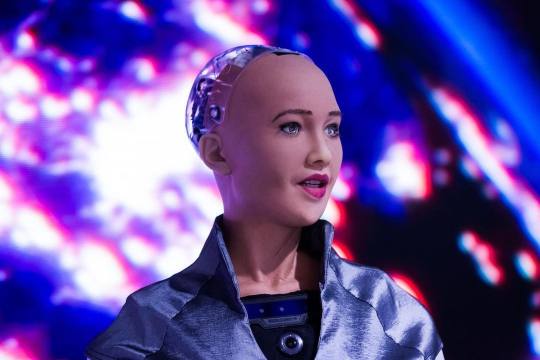
View On WordPress
#Advanced robotics technology#AI#AI assistants#artificial intelligence#Emotional AI#Hanson Robotics#Humanoid AI robots#humanoid robot#Intelligent robots#Interactive robots#Robot Sophia#Robotics#Robotics and automation#Robotics in education#Robotics in healthcare#technology
5 notes
·
View notes
Text
For fucking real. Insurance = pathetically, an excuse to exploit and waste people’s time and money.
AI does not mean better or smarter

50K notes
·
View notes